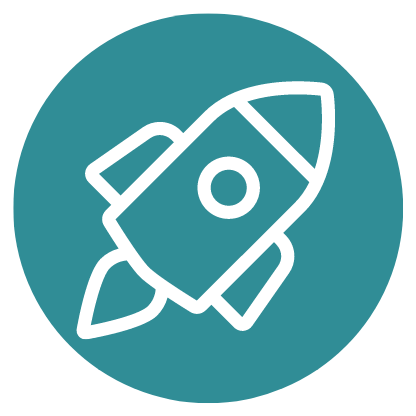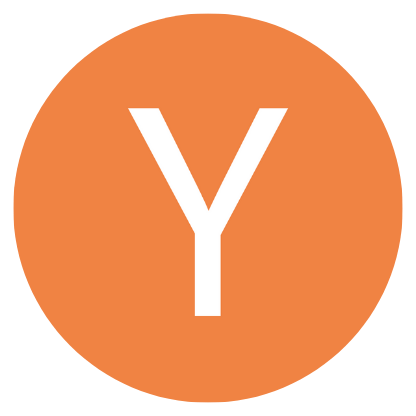Adora Cheung – How to Prioritize Your Time | Y Combinator
Reference: Y Combinator. (2019, September 13). Adora Cheung - How to Prioritize Your Time [Video]. YouTube.
We Make Your Education Count

Get the Credit You Deserve and Become the Most Attractive Job Candidate by Earning and Posting A+ Badges to Your Linkedin Profile.
Sign Up to Get Started at Accredicity
|
Unlock the keys to success with Adora Cheung's advice on how to prioritize your time and maximize your startup's chance for success. Adora Cheung, a partner at Y Combinator, offers her advice on how to prioritize your time when working on a startup. She tackles the difficult task of allocating limited time to maximize the chance of success. Cheung outlines the distinction between real and fake startup progress, and explains how to identify and prioritize tasks that will be most impactful. She shares her method of journaling and grading tasks, and provides an example to demonstrate how to determine high and low value tasks. Learning Outline1. Understand the distinction between real and fake startup progress: Real startup progress involves focusing on things that will move the needle for your startup, such as growing your primary KPI. Fake startup progress is when you focus on things that are not directly related to growing your primary KPI. 2. Keep a spreadsheet of ideas that can move your primary KPI: Consider tasks that involve talking to users and building and iterating your product. 3. Grade each task on your list: Assign each task a grade of high, medium, or low based on how impactful you think the task would be on achieving the weekly goal for your primary KPI. 4. Journal in detail: Track each hour of your day in the past week and be honest about the impact of your tasks on increasing your primary KPI. 5. Avoid switching tasks too often: Switching to the thing you just thought of causes a ton of whiplash and can prevent progress. Instructional ContentTime management is an essential skill for all entrepreneurs, and Adora Cheung’s video, “How to Prioritize Your Time”, provides valuable insight into how to maximize the use of time when running a startup. Cheung explains that time is a precious resource, especially for startups, and that it is important to identify and prioritize tasks that will have the most impactful on the startup’s progress. She emphasizes that the most important tasks to focus on are those that involve talking to users, building and iterating product, and growing the primary KPI. Cheung warns against focusing on “fake startup progress” like attending conferences and networking events, which are steps away from providing real value to the customer. To make sure you are prioritizing the right tasks, Cheung suggests journaling in detail each day of the past week and grading the tasks based on how impactful they will be on achieving the weekly goal for the primary KPI. By using Cheung’s advice, entrepreneurs can be sure they are using their time in the most effective way and achieving the most progress for their startups. Productivity
|

Adora Cheung suggests using your time wisely to increase the success of your startup. She says that it's important to focus on tasks that will help you grow your primary KPI - this could be revenue or active users. She suggests keeping a spreadsheet of ideas of how to grow your KPI, and then grading them with high, medium, or low depending on how likely you think that task will help you reach your goal. This way, you can focus on the tasks that are most likely to help you reach your goal and avoid tasks that will take time away from the important stuff. Video Quotes1. “Time burns money and money is the very basic thing that keeps a startup alive.” [Adora Cheung] 2. “Your primary KPI almost always is either revenue or active users and you should always be setting weekly goals for this to move the needle on the KPI.” [Adora Cheung] 3. “It's actually quite easy easy for a low value work to unnoticeably creep into your schedule.” [Adora Cheung] Related Quotes"You have to be very mindful about how you're spending your time and energy." - Adora Cheung Competencies1. Time Management Learning Outcomes1. Analyze the differences between real and fake startup progress in terms of how to use time in a startup. Sample Answers1. I learned that it is important to prioritize tasks that directly contribute to real startup progress, such as growing your primary KPI. This is in contrast to fake startup progress, which is focused on activities that are not directly related to your primary KPI. 2. I also learned that it is important to journal in detail hour-by-hour to identify low value tasks that may be sneaking into your schedule. This exercise can help you better prioritize tasks, as you can compare them against one another and determine the impact they will have on your primary KPI. 3. Finally, I learned that it is important to keep a spreadsheet of ideas that can move your primary KPI and to grade them according to their impact. Tasks should be graded as high, medium, or low, depending on how likely they are to help you meet your weekly goal for your primary KPI. Adora CheungAdora Cheung is the co-founder and CEO of Homejoy, a home cleaning and services company. She has a degree in Computer Science from Stanford and previous experience as a software engineer for Google. She is an expert on how to prioritize your time because her experience of being an entrepreneur and leading a startup has taught her the importance of doing the most important tasks first and managing her time efficiently. She is associated with Y Combinator, an American seed accelerator, as a part of the YC Fellowship program. Learning DesignThese three competencies are important for the course on Productivity because they provide the foundational skills needed to be successful in all areas of life. Time management skills help individuals to better manage their time, allowing them to fit more activities into their day and accomplish more. Startup and entrepreneurship skills are important to understand how to create and sustain a business, and how to turn ideas into reality. Organizing and prioritizing skills are essential in order to effectively manage multiple tasks, prioritize them, and ensure that the most important tasks are completed first. AssessmentQ: According to Adora Cheung, what is the highest leverage thing founders can do to increase their primary KPI? QuestionsQuestions for Students: Questions for Real-Life Examples: KeywordsPrioritize Time, Maximize Chances, Real Startup Progress, Fake Startup Progress, Primary KPI Goals, Talking to Users, Building Product, Low Value Work, Increase Primary KPI, Journaling Detailed, Increase Customers, Deliver Value, Optimize Metrics, Network Events, Winning Awards, Attending Conferences Facts1. Prioritizing tasks can help maximize a startup's chance of success. Trends1. Take a look at the competition: Research what your competitors are doing in terms of customer acquisition and retention. Try to find new ways to differentiate your product or service in order to stand out. 2. Reach out to potential customers: Use your existing network and/or online resources like LinkedIn, Twitter, and other social media platforms to reach out to potential customers. 3. Offer incentives: Offer discounts or other incentives to potential customers in order to increase the likelihood of them making a purchase. SourceThis learning instructional guidance was formulated using the GPT-3 language model created by OpenAI. SharePrioritize your time and maximize success with tips from YC partner Adora Cheung! #startup #time #successful #prioritize @Accredicity |








 149 Creds - Productivity
149 Creds - Productivity



